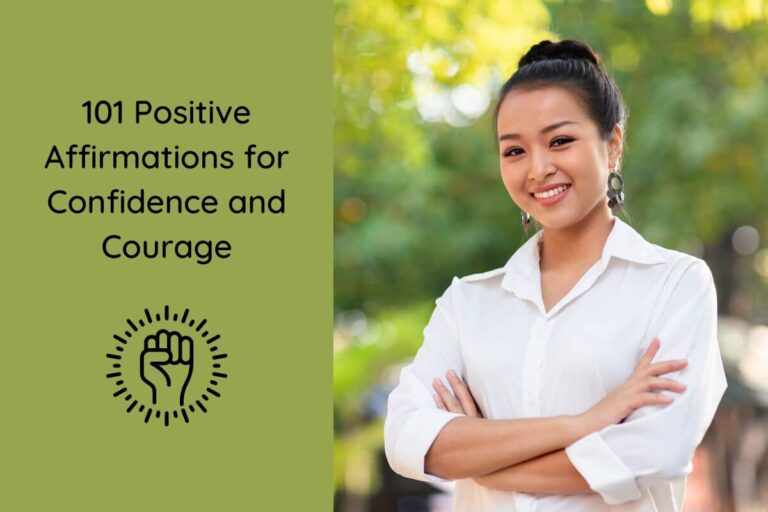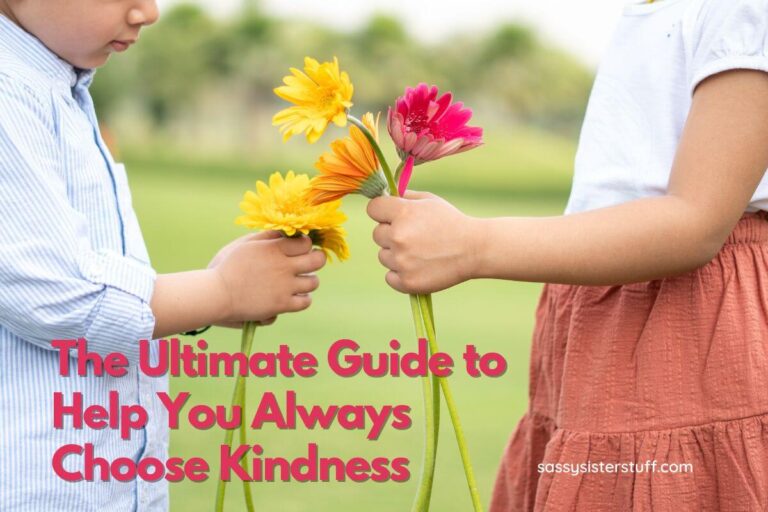Mindful Aging: Wellness Practices for a Vibrant Life
Aging is a privilege, but let’s be honest—it’s not always easy to embrace the changes that come with it.
As the years roll on, it’s natural to wonder how to stay vibrant, energized, and fulfilled. The good news? Aging doesn’t have to feel like a slow fade; it can be a celebration of all you’ve become and all you still want to do!
By approaching this phase of life with mindfulness and intention, you can unlock wellness practices that keep your body strong, your mind sharp, and your heart open to joy.

Whether you’re ready to rediscover your spark or simply curious about new ways to thrive, this article will inspire and empower you.
Let’s explore how mindful aging can pave the way for a future that feels as bright and limitless as you dare to imagine.
The Importance of Mindfulness in Aging
Mindfulness, at its core, is the practice of being fully present in the moment, tuning in to your thoughts, emotions, and surroundings without judgment. When applied to the aging process, mindfulness transforms how we experience this phase of life.
Mindful aging is about embracing the here and now with intention and gratitude. Instead of fixating on what you’ve lost or fearing what’s ahead, it invites you to focus on the beauty and possibility of the present.
It’s a shift in perspective—from seeing aging as a decline to recognizing it as an evolution, rich with opportunities for growth, connection, and self-discovery.
Practicing mindfulness in aging helps you navigate changes with grace, reduces stress, and fosters a deeper sense of fulfillment. It can mean savoring the small joys of everyday life, staying curious about new experiences, or simply being kind to yourself as your body and mind evolve.
By weaving mindfulness into your daily routine, you can nurture a sense of peace and purpose that allows you to thrive at any age. It’s not about trying to deny the realities of aging—it’s about meeting them with an open heart and a resilient spirit.

Nourishing the Body with Healthy Nutrition
You’ve heard the saying, “You are what you eat,” but as you age, this takes on even greater significance. What you choose to fuel your body with can directly impact your energy levels, immune function, and overall vitality. The good news? It’s never too late to make mindful, nourishing choices that support healthy aging.
Focus on whole, nutrient-dense foods that provide the vitamins, minerals, and antioxidants your body needs. Think colorful fruits and vegetables, lean proteins, whole grains, and healthy fats like avocados, nuts, and olive oil. These foods work together to support your heart, brain, and bones, helping you feel your best every day.
Hydration is just as important. As we age, our sense of thirst may decrease, but our need for water doesn’t. Make it a habit to drink plenty of fluids throughout the day, whether it’s water, herbal teas, or infused waters for a flavorful twist.
Don’t forget the power of mindful eating. Slow down during meals, savor the flavors, and pay attention to your hunger and fullness cues. This simple practice can help you enjoy your meals more while also supporting better digestion and portion control.
Finally, consider your unique needs and health issues. Are there specific nutrients, like calcium, vitamin D, or fiber, you need to focus on? A registered dietitian or healthcare provider can help you tailor a plan that’s right for you.
By nourishing your body with intention and care, you’re not just eating for today—you’re investing in a vibrant future.
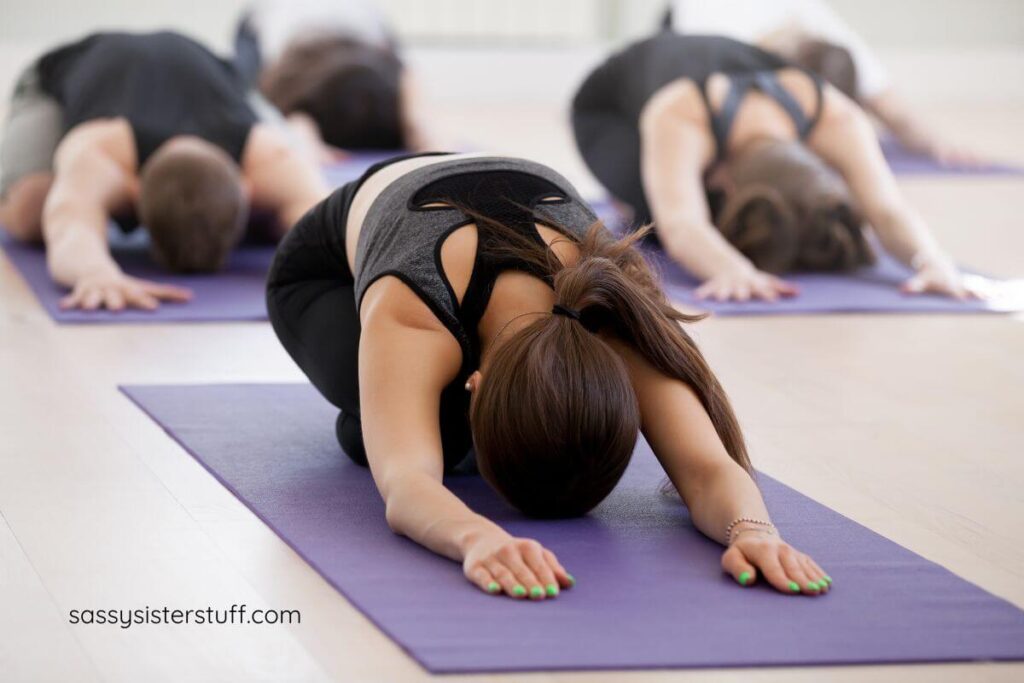
Staying Active: Exercise for All Ages
Staying active is one of the most powerful tools you have to support your body and mind as you age. Regular movement doesn’t just keep your muscles strong and your joints flexible—it’s also a proven way to boost mood, improve balance, and maintain independence.
The key is to find activities you enjoy and can sustain over time. Walking, yoga, swimming, tai chi, and dancing are all fantastic options that cater to different fitness levels and interests. Strength training is another excellent choice, helping to build muscle mass and protect your bones in your golden years.
Aim for at least 150 minutes of moderate aerobic activity each week, but remember—every little bit counts! Even short bursts of movement, like taking the stairs or gardening, add up and make a difference. Incorporate variety to keep things interesting and challenge your body in new ways.
Don’t overlook stretching and balance exercises; they’re invaluable for preventing injuries and enhancing flexibility.
And, be sure to listen to your body. Rest days are just as important as active ones, giving your muscles time to recover and grow stronger. If you’re managing chronic pain or health conditions, consult a healthcare professional to tailor an exercise plan that works for you.
By staying active, you’re not only supporting your physical health but also giving yourself the gift of confidence and vitality. Movement truly is medicine for the body and soul and helps you develop a whole new mindset.
.
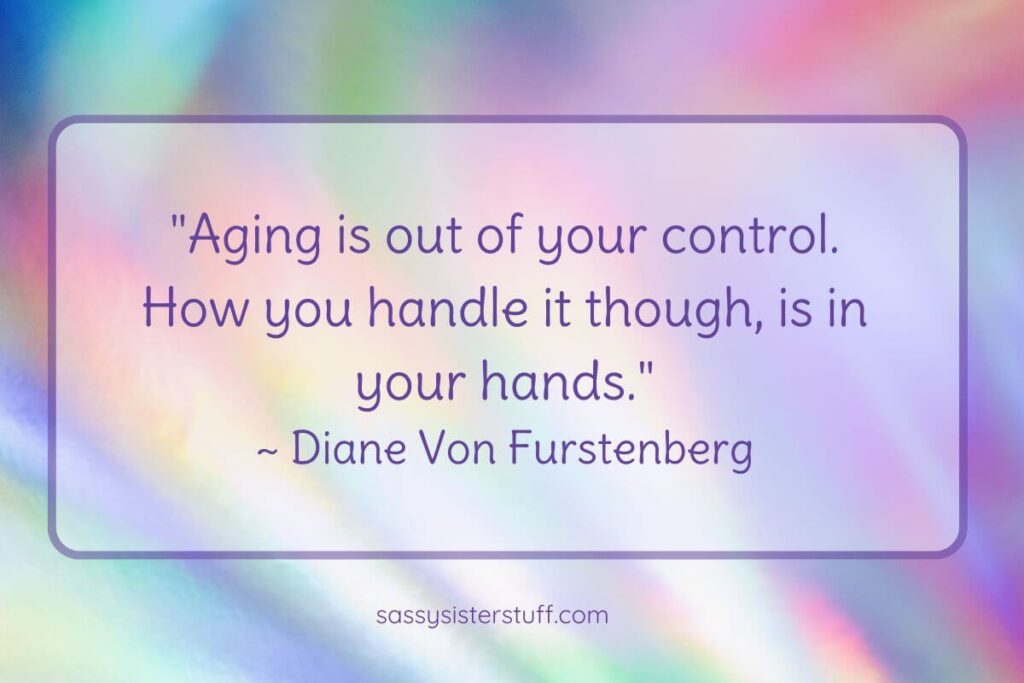
Mental Wellness: Practices for a Sharp Mind
Your mind is one of your most valuable assets, and nurturing it is key to thriving in your later years. Mental wellness goes beyond keeping your memory sharp—it’s about fostering resilience, curiosity, and a positive outlook on life.
Start by engaging in activities that challenge your brain to avoid cognitive decline. Puzzles, reading, learning a new skill, or even picking up a musical instrument can stimulate cognitive function and keep your mind agile. Variety is essential—explore different interests to activate various parts of your brain.
Mindfulness practices like meditation, gratitude, journaling, affirmations, and deep breaths can help you manage stress and improve focus. Even just a few minutes a day can create a sense of calm and clarity that carries into everything you do.
By incorporating these simple practices into your routine, you can cultivate mental clarity and emotional balance, allowing you to fully embrace each stage of life with confidence.

Social Connections: Building a Support Network
Social connections are like a lifeline for your emotional well-being, helping to combat loneliness, reduce stress, and even improve physical health.
Building a strong social support network starts with nurturing the relationships you already have. Reach out to family members, old friends, or neighbors for regular chats, coffee dates, or shared activities. Even a simple phone call can brighten your day and theirs.
If your social circle feels a bit thin, don’t be afraid to step outside your comfort zone. Join a local group or club that aligns with your interests, whether it’s a gardening society, a book club, or a fitness class. Volunteering in your community is another fantastic way to meet people while giving back.
Quality matters just as much as quantity when it comes to relationships. Focus on spending time with those who uplift and support you, and don’t hesitate to set boundaries with toxic or draining individuals to protect your emotional health.
Staying connected in today’s world doesn’t always have to mean face-to-face interaction. Video calls, social media, and online communities can help you maintain bonds and make new ones, especially if mobility or distance is a challenge.
By prioritizing social connections, you’re not just surrounding yourself with love and support—you’re also building a safety net that can provide comfort, laughter, and encouragement for the journey ahead.
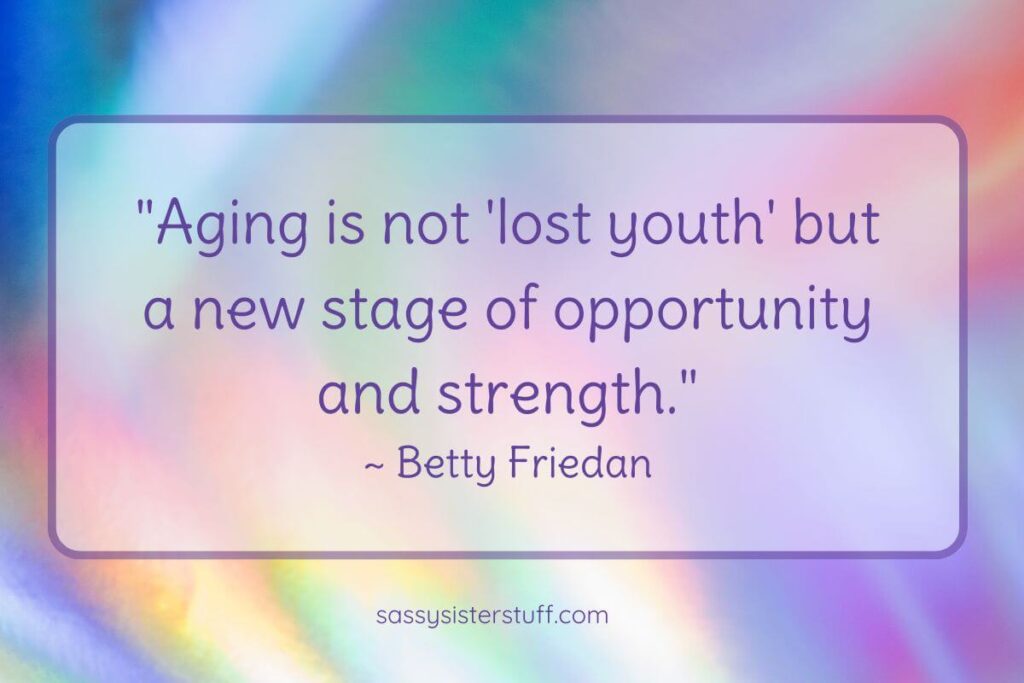
Embracing Creativity and Lifelong Learning
They say you can’t teach an old dog new tricks—but we know that’s far from true! It’s time to disspell those outdated stereotypes! Creativity and lifelong learning keep your mind engaged, spark joy, and help you stay curious about the world around you.
Exploring creativity doesn’t mean you have to be an artist or a writer (though you certainly can be!). It’s about finding outlets that let you express yourself, explore new ideas, and engage in personal growth. Whether it’s painting, gardening, knitting, or cooking, creative activities can boost your mood and give you a sense of accomplishment.
Lifelong learning is just as rewarding. Take a class at your local community center, enroll in an online course, or attend lectures and workshops. Topics that excite you—whether it’s history, technology, or a new language—can keep your brain active and foster a sense of purpose.
Creativity and learning also go hand in hand with mindfulness. Immersing yourself in a creative project or soaking up new knowledge helps you stay present and focused. Plus, it’s a wonderful way to build resilience and adaptability, qualities that serve you well as life continues to change.
Remember, this isn’t about perfection—it’s about joy and growth. Embracing creativity and learning can open doors you never knew were there, enriching your life in unexpected ways.
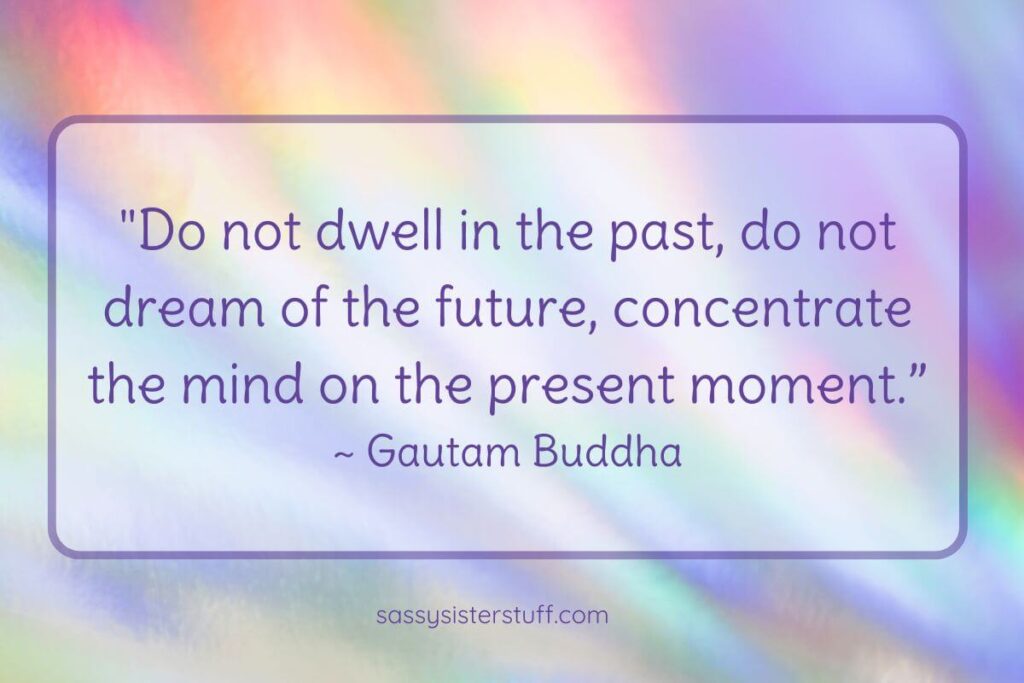
Stress Management Techniques for Daily Life
Stress doesn’t take a vacation, no matter how old we get—but the good news is that you can learn to manage it better. By adopting simple, practical techniques, you can bring calm and balance into your everyday life, even during challenging times.
You can change those negative emotions with mindfulness-based therapies like deep breathing, regular meditation, an attitude of gratitude, and yoga. These tools help calm your nervous system, reduce anxiety, and bring you back to the present moment. Even just a few minutes of focused breathing can promote significant improvements when you’re feeling overwhelmed or stressed.
Physical activity is another powerful tool for stress. A brisk walk, some gentle stretching, or even dancing to your favorite music can help release tension and boost your mood. Movement naturally lowers stress hormones and increases endorphins, making it a win-win for your body and mind.
Creating a daily routine that includes time for relaxation is equally important. Whether it’s soaking in a warm bath, journaling your thoughts, or enjoying a good book, these moments of self-care recharge your mental batteries and trigger your present-moment awareness.
Don’t forget the power of laughter and connection. Spending time with people who make you smile or watching something that tickles your funny bone can instantly lighten your mood.
Finally, remember that it’s okay to seek support when needed. Talking to a trusted friend, joining a support group, or consulting a therapist can provide relief and perspective when stress feels unmanageable. These feelings of overwhelm are a natural part of life and you deserve to seek help when needed.
By integrating these techniques into your life, you can build resilience and create a sense of calm that carries you through whatever comes your way.

Sleep Hygiene: Restorative Sleep Practices
In the journey of mindful aging, a regular restorative sleep practice is as vital as maintaining physical health and mental agility. Quality slumber serves not just as a time for your body to recover but also enhances cognitive function and emotional well-being.
You might consider integrating calming rituals into your evening routine; perhaps sipping herbal tea, journaling, or indulging in gentle stretches can signal to your mind that it’s time to unwind.
Sleep hygiene—embracing habits like maintaining a consistent sleep schedule or minimizing screen exposure before bed—can truly transform the way you experience aging. Imagine waking up rejuvenated rather than groggy; this transformation allows you to engage more fully in activities that spark immense joy and connection with others.
A well-rested mind is not only more creative but also better equipped to handle life’s complexities. As you embrace mindful aging, remember that every effort invested in improving your sleep quality is an investment in a vibrant and fulfilling life ahead.
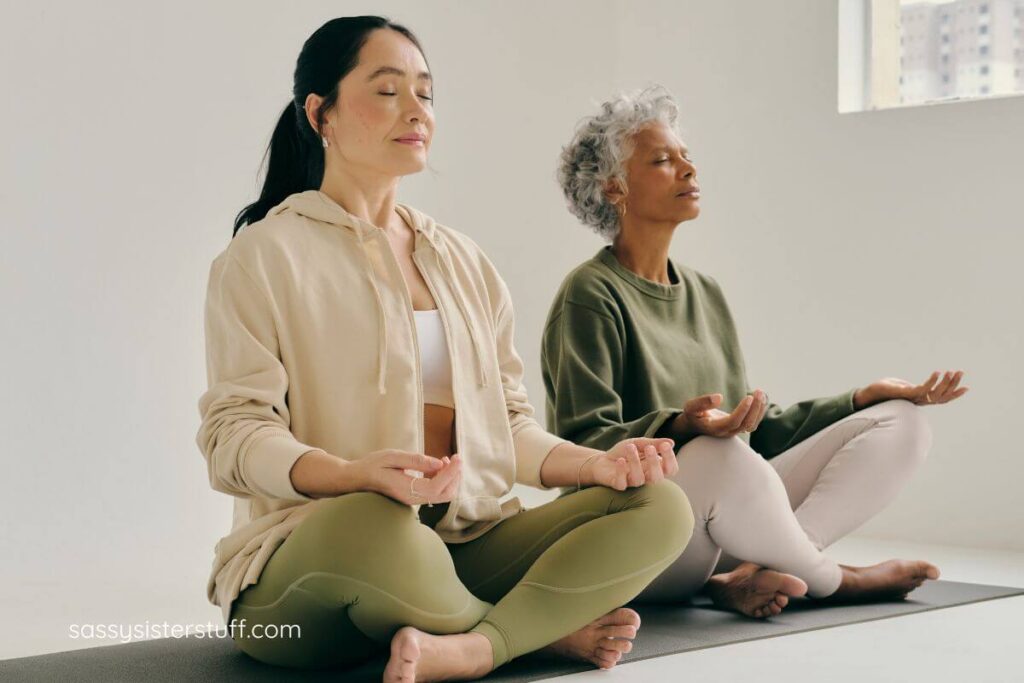
Expert Insight: Dr. Andrea Brandt on Mindful Aging
Dr. Andrea Brandt, PhD, MFT, is a renowned psychotherapist with over 35 years of clinical experience. She specializes in aging, relationships, and emotional wellness. In her book Mindful Aging: Embracing Your Life After 50 to Find Fulfillment, Purpose, and Joy, Dr. Brandt encourages individuals to discard old stereotypes about aging and recognize the abundant possibilities that come with growing older.
She emphasizes the importance of passion, purpose, and creativity in enhancing life after 50, offering practical exercises and tools to help individuals embrace a new mindset and navigate the aging process with confidence and joy.
Some of the key recommendations made by expert Andrea Brandt include:
- Realistic Positivity: Developing a mindset that acknowledges current realities while focusing on desired outcomes. This involves accepting the present and directing attention toward what you would love to achieve.
- Gratitude Practice: Cultivating an attitude of gratitude to enhance overall well-being and shift your focus toward positive aspects of life.
- Empowering Self-Talk: Engaging in positive and supportive internal dialogue to reinforce self-worth and motivation.
- Vision Creation: Proactively designing a vision for life after 50, identifying goals and aspirations to pursue in your later years.
- Mindfulness Practices: Incorporating mindfulness exercises, such as meditation and deep breathing, to stay present and manage stress effectively.
These exercises aim to empower individuals to redefine aging, encouraging a life filled with fulfillment, purpose, and joy.
For more detailed guidance and additional exercises, you might consider exploring Dr. Brandt’s book directly.
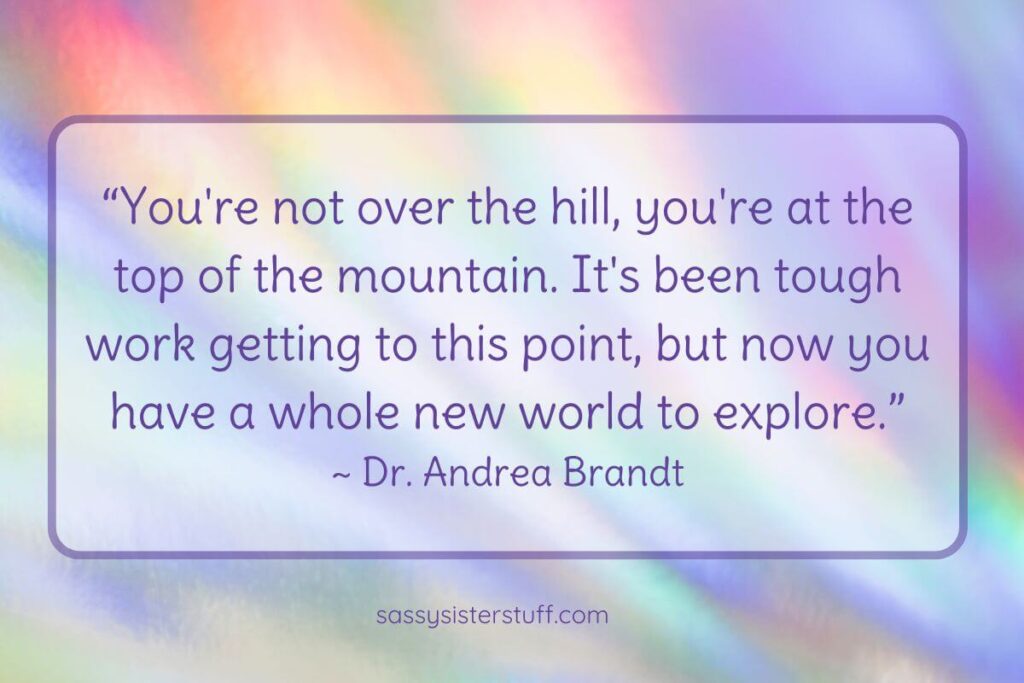
Final Thoughts: Cultivating a Vibrant Future Together
Mindful aging helps older adults learn how to enjoy everyday life experiences and look toward the future with a sense of empowerment and desire. It is a holistic approach—mind, body, and spirit—to promote happiness and well-being in older age.
So I invite you to engage in regular mindfulness practices that enhance emotion regulation and encourage cognitive clarity that help you make empowered choices about health and well-being as the years go by.
You might also want to do a little more laughing — it’s good for the soul! Read some funny facts about aging that prove getting older is NO joke right here.
You’ll also enjoy these Related Articles:
- Mindfulness Matters: How Mindfulness Changed My Life
- 119 Daily Mindfulness Affirmations to Improve Your Life
- 90 Mindfulness Journal Prompts to Improve Your Life
- 12 Benefits of Mindfulness: Mind, Body, and Soul
Love to ALL! ~ Susan



